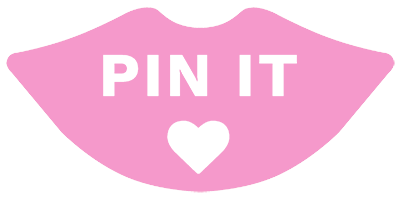If you thought you’d no longer need your pregnancy pillow after giving birth, think again. Your pregnancy pillow can offer significant postpartum relief, helping you navigate the physical challenges of motherhood. These pillows are designed to provide comfort and support, making them useful even after your pregnancy has ended.
After childbirth, your body needs time to heal, and comfort becomes a priority. A pillow for pregnant women can continue to help with this. Whether you’re nursing or just trying to sleep better, these pillows can provide the necessary support for your back, neck, and legs. It’s a small investment that can make a big difference in your comfort level during a time when you need it most.
Many new moms find these pillows invaluable for creating a cozy, supportive environment for themselves and their babies. Whether you’re sitting up to a nurse or simply trying to get some much-needed rest, the right pillow can make all the difference.
Optimizing Postpartum Comfort and Recovery
Having the right tools and information can make a big difference in your postpartum recovery. From choosing the right pregnancy pillow to finding the best sleeping positions, every detail counts in easing common discomforts.
Choosing the Right Pregnancy Pillow for Postpartum Use
A pregnancy pillow can be a great aid even after childbirth. Types include the body pillow, wedge pillow, u-shaped pillow, and c-shaped pillow. Each type serves different needs. For instance, a U-shaped pillow offers full-body support, which can be especially helpful for relieving afterpains and supporting sore muscles.
C-shaped pillows are great for under-the-belly support and are ideal for side-sleeping. A wedge pillow can elevate your legs to reduce swelling. Choose the type based on your specific discomforts to optimize your recovery process.
Sleeping and Resting Positions for Postpartum Healing
How you sleep and rest can have a significant impact on your postpartum healing. Lying on your back with a wedge pillow elevating your legs can relieve lower back pain. If you have perineal pain, sleeping on your side with a C-shaped pillow between your knees could provide relief.
Using a U-shaped pillow can help support your entire body, reducing strain on your back and neck. These positions can aid in pain relief and better sleep quality, which is important for recovery. Try different positions to find what works best for you and make adjustments as needed.
Managing Common Postpartum Discomforts
Postpartum recovery can come with various discomforts such as afterpains, swelling, and sore muscles. Using pregnancy pillows can help manage these issues. Afterpains can be alleviated by supporting your abdomen with a body pillow.
Swelling in the legs can be reduced with a wedge pillow to elevate your feet. If you experience back pain, a U-shaped pillow can offer much-needed support. Not only will these pillows help ease physical discomforts, but they also provide a sense of comfort that can aid in psychological recovery.
By selecting the right pregnancy pillow and using it effectively, you can greatly improve your postpartum comfort and speed up your healing process.
Maintaining Postpartum Health and Well-being
Postpartum recovery involves both physical and emotional care. Paying attention to pain management, nutrition, and emotional health is important.
Physical Health and Recovery After Childbirth
After childbirth, your body needs time to heal. You might experience perineal pain, especially if you have stitches. Using a witch hazel pad can help soothe discomfort. Vaginal discharge, known as lochia, will occur, and you’ll need pads for the bleeding that lasts several weeks. Postpartum pain management can include medications recommended by your healthcare provider.
For breastfeeding, ensure you get the support needed, as it helps with uterine contraction and reduces bleeding. Watch for incontinence, which might occur due to the strain on pelvic muscles during delivery. Regular pelvic floor exercises can strengthen these muscles.
Emotional Well-being and Self-care Post-Delivery
Your emotional health is just as important. Feeling mood swings and fatigue is normal. However, if you experience intense sadness or anxiety, seek professional help, as this might be postpartum depression. Maintaining a balanced diet and staying hydrated can impact your mood positively.
Use self-care practices like gentle exercise, adequate sleep, and relaxation techniques. Hair loss is common due to hormonal changes, but it usually resolves within a few months. Surround yourself with support from friends and family. Personal preference matters; do what feels right for you and your baby. Always reach out for help when needed.
Conclusion
Using a pregnancy pillow during postpartum can greatly improve your comfort. It provides essential support for your changing body.
These pillows can help you get better sleep and reduce common aches.
You’ll find that keeping your pregnancy pillow is a wise decision as you navigate the postpartum period.




